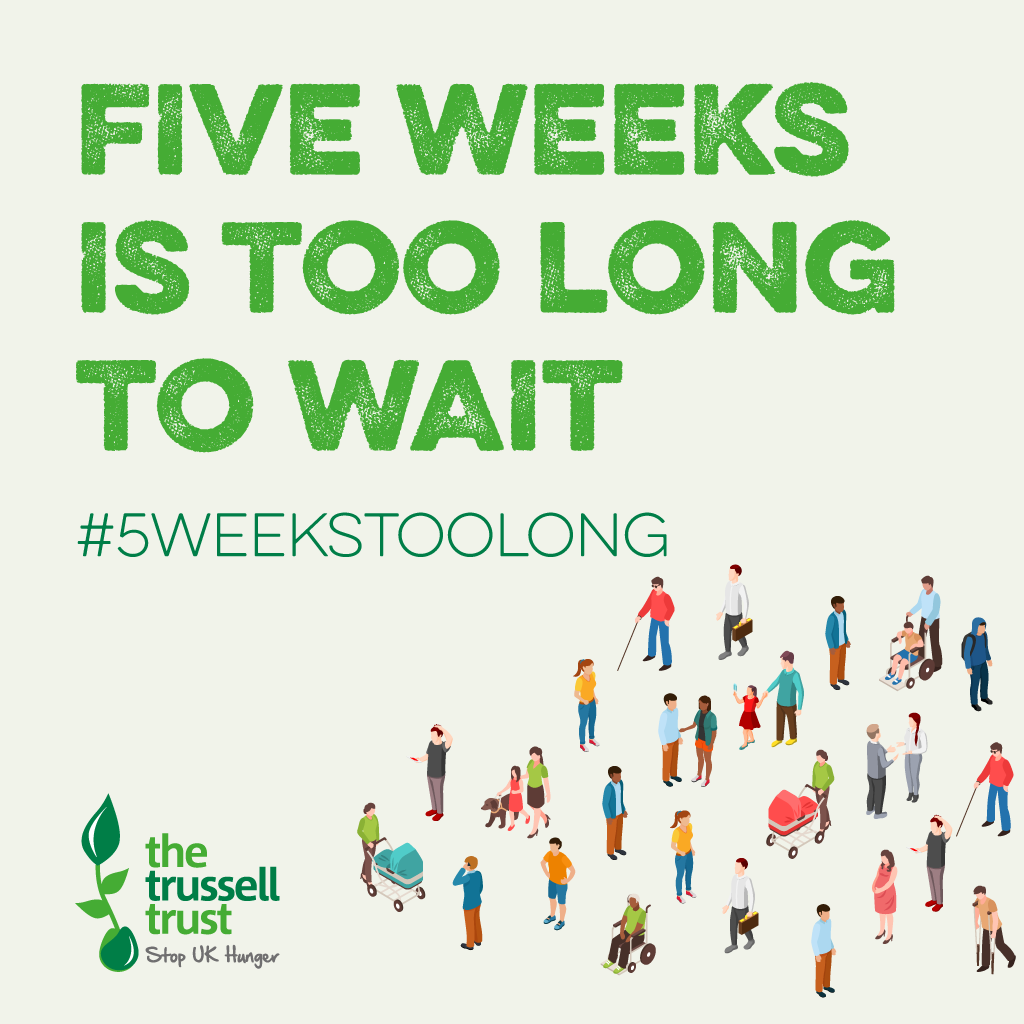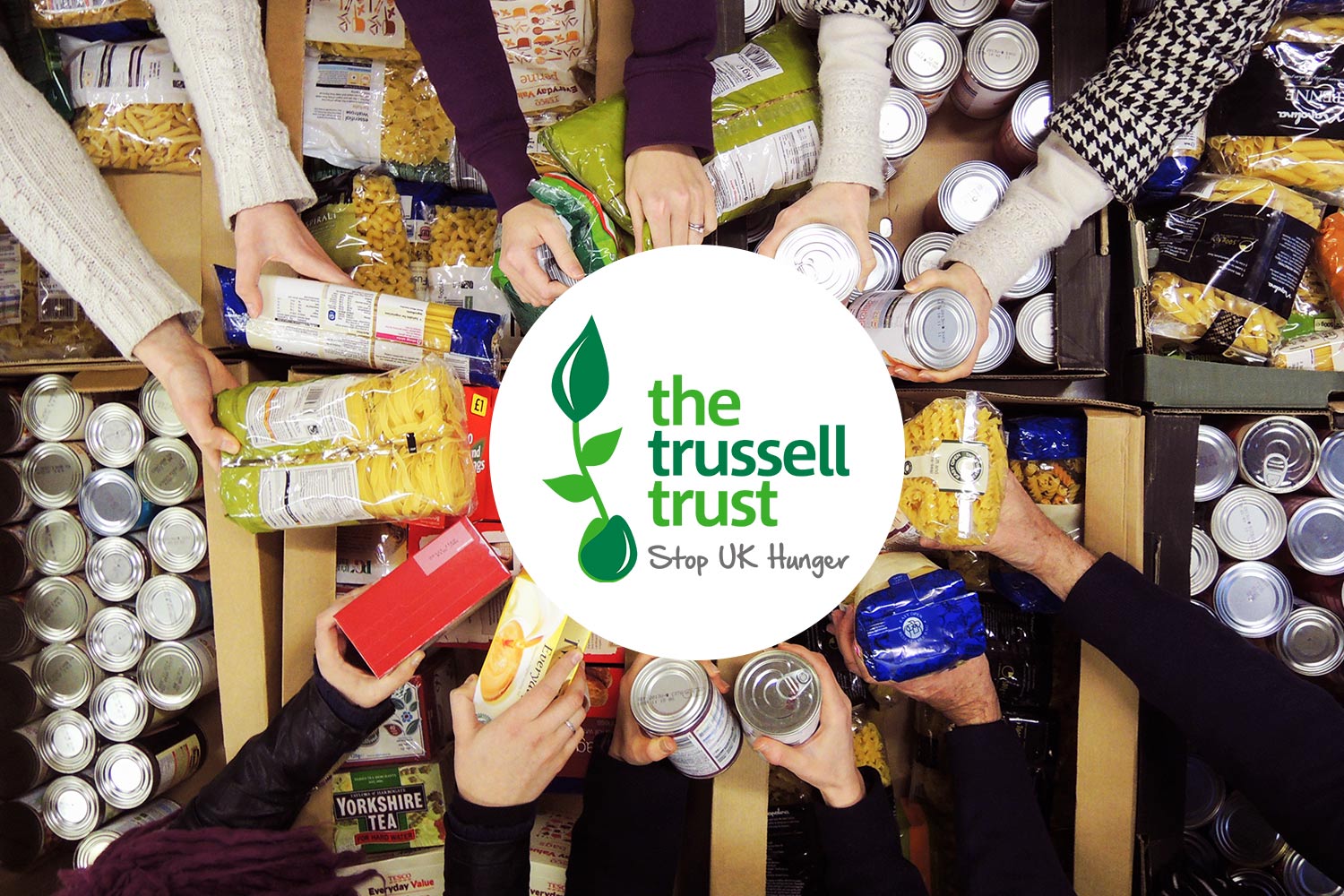A blog post by
Emma Revie
Chief Executive
Recently, the Trussell Trust partnered with single-parent charity Gingerbread as part of the #5WeeksTooLong campaign.
This campaign has been highlighting the changes Universal Credit needs to ensure proper support is in place for families with children.
The Government needs to fix issues with Universal Credit. There are a number of problems that must be addressed – the first priority must be to end the wait for a first benefit payment.
We’ve spoken to two mums working with Gingerbread to highlight the issues single parents can face – both are in work but need some support from our benefits system to keep their families afloat.
Instead, the problems they’ve encountered with Universal Credit have left them struggling to keep their heads above water.
Ayo, 29, London
Ayo is a single mum-of-one who works full-time in communications. When she came off maternity leave she had to apply for Universal Credit to help with childcare costs.
“I have to cover nursey fees which must be paid in advance and ended up paying three months fees without and being reimbursed by universal credit
“There were so many human errors. I was even told I wasn’t entitled to the childcare element of universal credit.
“After I eventually got a local MP involved, they addressed it, but I had endured several stressful calls – had to use food banks and was going to friend’s homes for food
“I kept being told staff were too busy to deal with my case and felt completely stressed out and unsupported. I have worked since I was young and paid my taxes which I thought was used to help the people who need it in society.
“Why should I pay taxes when I am not entitled to the help they’re meant to provide for people like me?”
Since Ayo’s case was looked into she gets a contribution of just £100 a month towards nursery fees.
“Because I make a fairly good wage I cannot be helped by any other charities, but nursery fees and rent costs are so high I have been left without money to afford food – I’ve been skipping breakfast and dinner so my daughter can eat. I’ve been in my overdraft and getting in debt.
“It’s pulled my confidence down. I feel scruffy at work as I cannot afford to keep up my maintenance.”
Shavishta, 26, Dorset
Shavishta is a single mum to a 4-year-old. Last November she got part-time work. The change meant she had to apply for Universal Credit.
Moving from the old benefits system to the new means she is left with far less than before – just £120 a month after rent is paid.
In March she lost her job but she has been studying a science degree and is due to start work next week.
“I feel hopeless and have been put on anxiety medication. I’ve been surviving off just £120 a month, but then having to cover nursery too. It’s been a nightmare – I’m £2,000 in debt. I can’t get any more loans.
“When I first started Universal Credit I thought I’d be able to get more support but they don’t view further education as a means to progress.
“I want to work and get a good job but as a single parent it’s so tricky covering child care. I feel they (the system) don’t want me to succeed to get back into society. I’m just another statistic. I don’t feel supported at all.”
Women like Ayo and Shavishta are being trapped in poverty. If we want to help free people instead of locking them into further poverty, debt and hardship, we need to make sure Universal Credit can properly support people.
The first thing the Government’s must do is end the five week wait. It’s #5WeeksTooLong.
Agree this can change? Join us.
Read more









